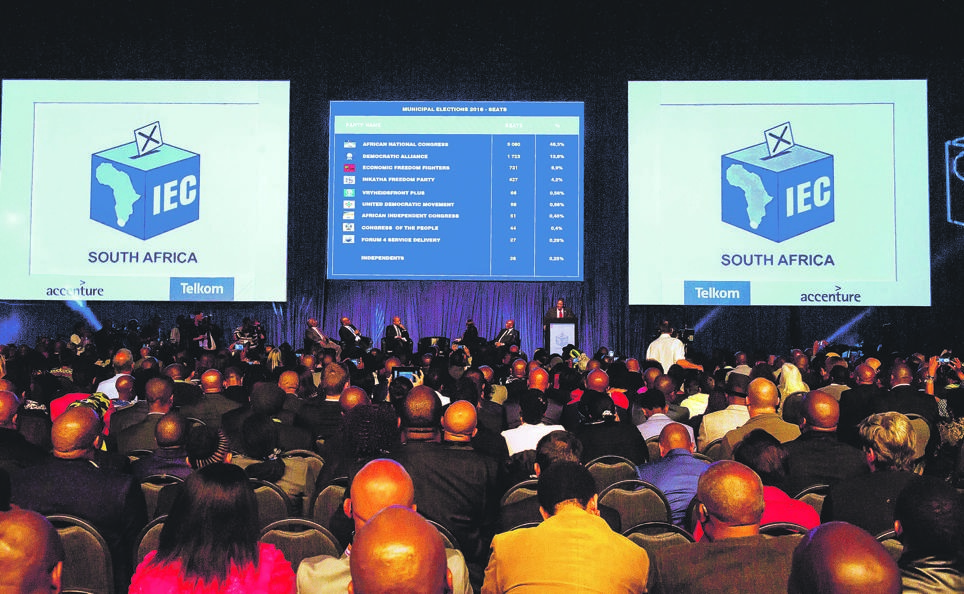
In last year’s general election in the UK the Official Monster Raving Loony Party received 3 890 votes, nowhere near enough to win a seat in Parliament, but still enough votes to put it ahead of about 50 smaller parties in the final ranking.
In Canada’s 2015 federal election the Rhinoceros Party – which promised not to keep any of its election promises if elected – received 7 263 votes, not enough to win seats but nearly eight times as many votes as the Pirate Party, which received 908.
These are just some of the better-known frivolous or satirical political parties that contest elections around the world each year. They may bring a light-hearted and sardonic spin to the otherwise serious business of democratic elections, but they can result in long, unwieldy and cluttered ballot papers.
In the 2014 elections in Tunisia, which has no restrictions on standing for elections, 9 000 candidates competed for 217 seats. In the Democratic Republic of Congo in 2006 one constituency resulted in a ballot paper four pages long to accommodate 856 candidates vying for four seats.
Not only do such mammoth ballot papers cost more to print, store and transport, but they can adversely affect the ease and simplicity of the voting process and reduce the ability of voters to easily find the party they wish to vote for. A large number of parties or candidates make it difficult for voters to make an informed choice.
It is for these reasons that many electoral democracies impose some kind of qualifications for parties and candidates seeking to contest elections. The most common systems in use are those requiring a monetary deposit or submission of proof of support, usually by submitting signatures of supporters.
In some cases these two systems are used in combination. Like most things in life, each of these systems has its pros and cons.
The benefit of a deposit system is that it is relatively simple and quick to implement for both parties and the election management body. The drawbacks include perceptions of favouring established, larger and better-funded parties, and presenting economic obstacles to newer, smaller parties.
The benefits of a support or signature system are that it does not impose economic differentiation and, on the face of it, is a more equitable system. But it has disadvantages. First, it can be difficult to verify and authenticate the signatures provided. Second, it is not a reliable method of proving election support.
Election management bodies around the world continue to grapple with how best to balance the right to stand for election with the desire for a ballot paper of reasonable length, allowing voters to make an informed choice.
According to the ACE Electoral Knowledge Network based in Sweden, at least 66 countries around the world use election deposits as a way to minimise the number of frivolous contestants.
In South Africa, electoral prescripts provide for the electoral commission to set an amount to be deposited by parties to contest elections.
The practice of prescribing election deposits has been part of our electoral democratic reality. In setting this amount, the commission has always sought to strike a judicious balance between an amount so high that it unfairly impairs the ability of potential electoral contestants and an amount so low that it fails to dissuade frivolous parties.
In 2004 the amounts set were R150 000 for national elections and R30 000 for provincial elections. This was increased to R180 000 and R34 000 in 2009 and raised again to R200 000 and R45 000 in 2014.
Parties that fail to secure a seat in the National Assembly or provincial legislature forfeit their deposit to the national revenue fund.
The electoral commission is proposing to keep the amounts the same for next year, meaning that in real terms the amounts have decreased substantially in the past 14 years. In the same period there has been a corresponding increase in the number of political parties contesting elections. Since 1999, the number of parties on the national ballot paper has almost doubled from 16 to 29 in 2014.
Of course, the two are not necessarily correlated. There are a wide variety of factors influencing the number of parties contesting elections. But it is reasonable to assume some nexus between the costs of standing for election and the number of parties contesting elections.
What is also clear is that despite the increase in the number of political parties contesting national elections in the past 20 years, the number of parties winning seats in the National Assembly has remained relatively constant.
An unfettered number of parties and candidates in elections is not always in the interest of voters or democracy, especially when few have any real prospects of electoral success.
Mamabolo is chief electoral officer of the electoral commission, which published a notice inviting comments and submissions on proposed deposits for next year’s national and provincial elections from interested stakeholders, including political parties and voters. Submissions must be emailed by October 26 this year to deposits@elections.org.za




 Publications
Publications
 Partners
Partners








